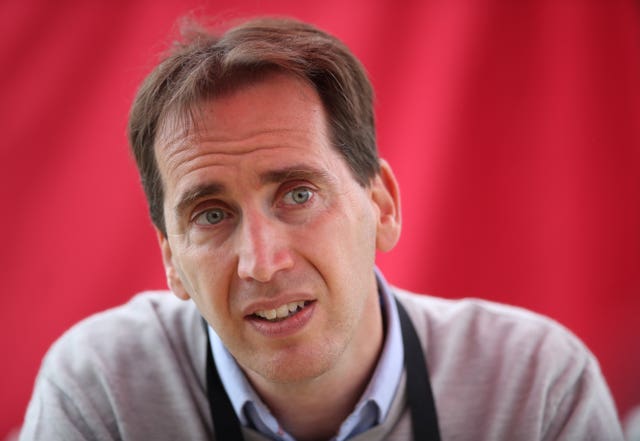A senior Metropolitan Police commander insists the operation around Sunday’s Euro 2020 final was not a failure and that the match could have been abandoned without the immediate intervention officers made.
Ticketless fans, described as “drunken yobs” by Football Association chief executive Mark Bullingham, were able to gain entry to the stadium for the match between England and Italy, with reports that valid ticket-holders were left afraid to confront people who had stolen their seats.
The FA has announced it is conducting a full review into the matter, while European football’s governing body UEFA has appointed an inspector to carry out its own investigation into what occurred, as well as issuing charges against the FA related to other supporter misconduct inside the stadium on Sunday.
The Met’s handling of the event has been heavily criticised, but Deputy Assistant Commissioner Jane Connors issued a strident defence of their approach, while condemning those who had caused the chaos.
Statement from The @FA. pic.twitter.com/x1uCcGEOWe — FA Spokesperson (@FAspokesperson) July 12, 2021
“This was meant to be a day of national pride, full of jubilance and celebration,” Connors said in a statement.
“In the main, the day was exactly that. However, it was sadly tarnished by a minority of disorderly and violent fans who attempted to hijack the final for their own selfish personal gain.
“Throughout the course of the day, police officers witnessed disgraceful behaviour both in central London and at Wembley, where a number of people pushed through security cordons or fought with police officers.
“Ahead of the final, police commanders deployed one of the most significant and comprehensive policing plans the Met has ever committed to a football match of this scale. In Wembley, soon into the day it became clear that a high number of fans were arriving without tickets.
“Police commanders recognised this could result in ticketless fans attempting to get into the stadium, they updated security officials at Wembley of this risk. To support the stewarding efforts, further highly trained public order officers were deployed to Wembley Stadium as a precaution.
“Soon after gates opened, the stewarding and outer security perimeter became overwhelmed and fans began pushing through security checks. I want to praise the quick response by police commanders and those brave officers who confronted these subsequent scenes of disorder and violence.
“I am in no doubt that their swift action prevented any further escalation. Frustratingly, 19 of our officers were injured during the course of Sunday’s policing operation when confronting volatile crowds.
“I do not accept that the policing operation failed and I stand by the difficult decisions made by police officers and the Met’s public order commanders. Without their immediate intervention, it is possible that this game could have been abandoned.”
Julian Knight, the chair of the Digital, Culture, Media and Sport (DCMS) committee, has written to the FA seeking more information.
Our Chair @julianknight15 has written to The @FA CEO Mark Bullingham with urgent questions about the security incident at the Euro 2020 final at Wembley Stadium. 📧Read the full letter: https://t.co/FjJwEETFjH pic.twitter.com/7XwdI8YX95 — Digital, Culture, Media and Sport Committee (@CommonsDCMS) July 14, 2021
“The sheer number of ticketless people breaching the temporary, and arguably insufficient, barriers and physically attacking stewards and police to force their way into the match was appalling,” Knight wrote.
“In The FA’s statement on the matter, it stated that ‘security and stewarding numbers for the Euro 2020 final exceeded the requirements for the match and were greater than any other previous event’ at the venue. Clearly the numbers were still insufficient.”
The letter went on to pose a series of questions to Bullingham around security arrangements.
Knight said the committee was seeking a response by Tuesday.

The committee is due to hear evidence – most likely from Bullingham – in the coming weeks about the cultural significance of staging major events such as the 2030 World Cup.
A feasibility study looking at a potential UK and Ireland bid for the centenary finals is ongoing, but Sunday’s events cannot have helped boost the FA’s standing with UEFA, which is likely to be faced with a decision of whether to back that bid or a rival one from Spain and Portugal.
The British Government’s strong stance against the European Super League plans, which were announced in April, had previously been thought to have enhanced the bid’s prospects of success.
UEFA sources have not ruled out the possibility of England being ordered to play matches behind closed doors as a consequence of the disorder at Sunday’s match, depending on the findings of its investigation.
No Data Analysis info








